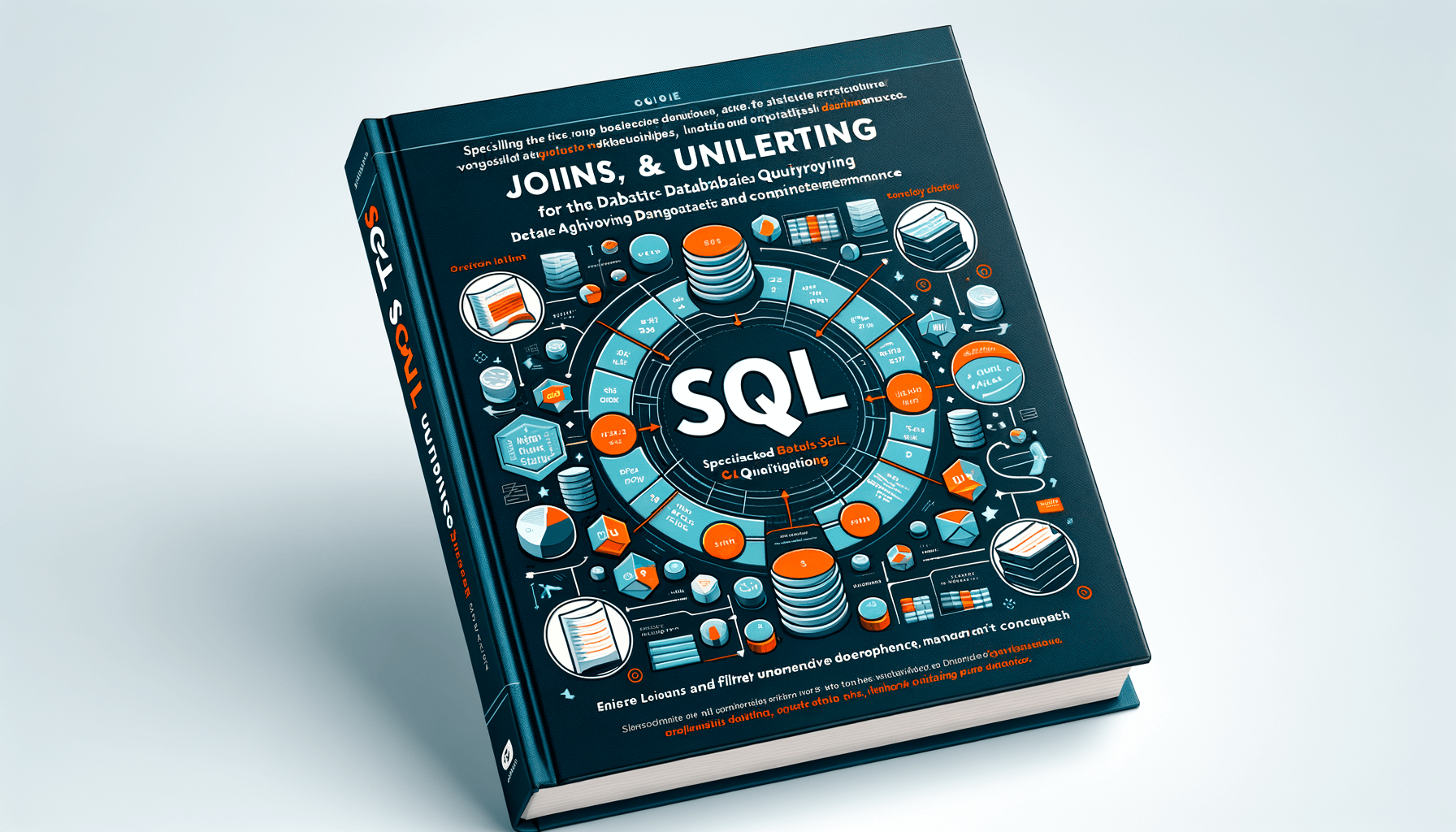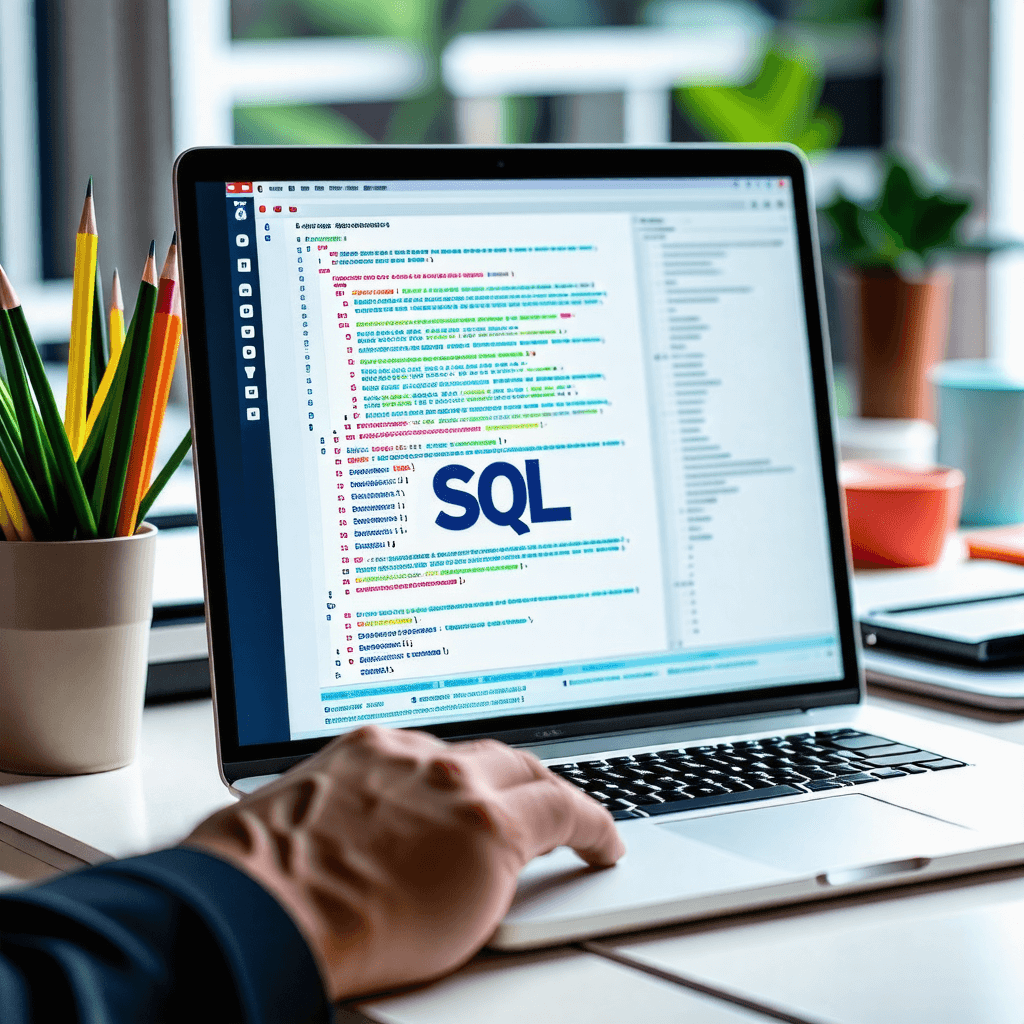A big variety of articles and resources

5 Key Strategies to Accelerate Your Journey from Novice Data Analyst to SQL Expert
 Sia Author and Instructor
Learn SQL
Sia Author and Instructor
Learn SQL
10 minute read
1. Mastering SQL Query Crafting
Mastering the art of SQL query crafting is essential for any aspiring data analyst aiming to become an SQL expert. The journey begins with understanding the basics of SQL syntax and gradually moves towards more complex query structures. Here are some steps to guide you through this process:
- Start with the fundamentals: Learn the basic SQL commands like SELECT, FROM, WHERE, GROUP BY, and ORDER BY.
- Practice regularly: Consistency is key to becoming proficient in SQL. Set aside time each day to write and troubleshoot queries.
- Utilize online resources: There are numerous online platforms offering SQL courses tailored for data scientists and analysts, covering topics such as SQL grouping, filtering, and data preparation.
Persistence and regular practice are crucial in mastering SQL. Embrace challenges as opportunities to learn and grow.
As you progress, you'll encounter real-world problems that require a deep understanding of SQL. Here's a table summarizing the stages of learning SQL:
| Level | Focus Area | Timeframe |
|---|---|---|
| Beginner | Basic Syntax | 1-3 Weeks |
| Intermediate | Joins & Indexing | 3-6 Weeks |
| Advanced | Optimization & Functions | 4-8 Weeks |
Remember, the goal is not just to learn SQL, but to understand how to apply it effectively in various professional scenarios, thus boosting your analytical capabilities and making you a valuable asset in any data-driven role.
2. SQL Joins Explained
Understanding SQL joins is crucial for any data analyst who wants to extract meaningful information from multiple related tables. Joins allow you to combine rows from two or more tables based on a related column between them. Here are the types of joins you should be familiar with:
- INNER JOIN: Retrieves records that have matching values in both tables.
- LEFT JOIN (or LEFT OUTER JOIN): Returns all records from the left table, and the matched records from the right table.
- RIGHT JOIN (or RIGHT OUTER JOIN): Gets all records from the right table, and the matched records from the left table.
- FULL JOIN (or FULL OUTER JOIN): Combines rows from both tables that match or are null if there is no match.
To master SQL joins, consider the following steps:
- Start with INNER JOINs to understand the basic concept of joining tables.
- Experiment with LEFT and RIGHT JOINs to see how they differ from INNER JOINs.
- Use FULL JOINs to explore complete datasets from joined tables.
- Practice with complex queries that involve multiple types of joins.
- Utilize subqueries and derived tables for more advanced join operations.
Remember, the key to mastering joins is practice. Use real-world scenarios to challenge yourself and solidify your understanding.
By incorporating these strategies into your learning routine, you'll be well on your way to becoming an SQL expert. For a comprehensive learning experience, consider enrolling in an SQL course covering JOINs, schema management, data integrity, query performance, and real-scenario problem solving. Expert-led training with practical exercises and AI assistance can significantly accelerate your journey.
3. SQL Functions and Techniques
To transition from a novice data analyst to an SQL expert, one must delve into the intricacies of SQL functions and techniques. Mastering these elements is crucial for efficient data manipulation and achieving deeper insights from your datasets.
Advanced Database Design and Normalization
Understanding advanced database design and normalization is essential to maintain data integrity and reduce redundancy. This knowledge is pivotal in ensuring backend query efficiency and overall database performance.
Stored Procedures and User-Defined Functions
Stored procedures and user-defined functions allow for the encapsulation of complex operations. Learning to create and utilize these structures can significantly streamline your SQL workflows.
Database Security and User Management
Securing your database and managing user access are key to maintaining data confidentiality and integrity. Best practices in this area are vital for protecting sensitive information.
SQL for Data Warehousing and Analysis
SQL's role in data warehousing and analysis cannot be overstated. It enables complex data manipulations and extraction of valuable insights, which are indispensable for data-driven decision-making.
Embracing these advanced SQL functions and techniques will not only enhance your analytical skills but also position you as a valuable asset in any data-centric role.
To further illustrate the importance of these techniques, consider the following table showcasing the relationship between SQL functions and their impact on data analysis:
| SQL Function | Impact on Data Analysis |
|---|---|
| Normalization | Ensures data consistency |
| Stored Procedures | Streamlines complex queries |
| User Management | Protects data integrity |
| Data Warehousing | Facilitates in-depth analysis |
- Practice using each function in different scenarios to understand their nuances.
- Engage in hands-on projects to apply these techniques in real-world situations.
- Stay updated with the latest best practices and industry standards.
By integrating these strategies into your learning journey, you will accelerate your path to becoming an SQL expert.
4. SQL Data Manipulation Tools
To transition from a novice data analyst to an SQL expert, it's essential to become proficient with SQL Data Manipulation Language (DML). DML is a key component of SQL that allows you to perform CRUD (Create, Read, Update, Delete) operations on your data. Mastering DML commands is crucial for effective data management and analysis.
Here are the primary DML commands you should focus on:
- SELECT: Retrieve data from the database.
- INSERT: Add new records to a table.
- UPDATE: Modify existing records.
- DELETE: Remove records from a table.
In addition to these commands, familiarize yourself with the use of aliases to improve query readability and manageability. Also, understanding different data types, such as the Decimal and Numeric types, is vital for accurate data manipulation.
Embrace the power of DML to transform raw data into actionable insights.
To further enhance your SQL skills, explore the following modules and their key topics:
| Module | Key Topics |
|---|---|
| MODULE 11: DATA QUERY LANGUAGE (DQL) | SELECT statement, WHERE clause |
| MODULE 12: DATA MANIPULATION LANGUAGE (DML) | UPDATE command, DELETE command, Adding Aliases |
| MODULE 13: STRING FUNCTIONS | Learn various string manipulation techniques |
| MODULE 14: DML OPERATIONS AND CONSTRAINTS | NOT NULL, UNIQUE, PRIMARY KEY, FOREIGN KEY, CHECK Constraints |
| MODULE 15: FILTERING DATA | Using SSMS & T-SQL for advanced data filtering |
By diving into these modules, you'll gain practical experience and real-world projects that will prepare you for advanced analytical tasks and ensure your readiness for data science projects. This hands-on approach is a cornerstone of any comprehensive Data Analyst course offering SQL skills for beginners and professionals alike.
5. SQL Query Expansion
Expanding your SQL query skills is essential for tackling complex data retrieval and analysis tasks. As you progress from basic queries to more sophisticated ones, you'll encounter a variety of techniques and tools that can significantly enhance your capabilities. Mastering these advanced concepts is key to becoming an SQL expert.
- Learn from real-world examples: Studying existing databases and queries provides invaluable insights.
- Challenge yourself: Push beyond comfort zones by exploring advanced SQL topics.
- Execution of SQL operations: Understand error handling and exception management.
- Advanced indexing and query optimization: Implement techniques to boost SQL performance.
- Working with views and materialized views: Simplify complex queries and improve efficiency.
By continuously expanding your knowledge and applying new SQL strategies, you can optimize data retrieval processes and contribute to data-driven decision-making in your organization.
The journey to SQL expertise is not just about learning syntax; it's about understanding how to apply SQL to solve real-world problems. Courses designed for junior data analysts and marketers often include hands-on projects and challenges that reflect everyday analytical tasks, providing a practical learning experience. With expert-led training and AI assistance, these courses can help you improve your data retrieval skills and make data-driven decisions.
Here's a quick overview of what a comprehensive SQL course might include:
| Course Feature | Description |
|---|---|
| Real-World Problems | Solve practical problems to gain experience. |
| Expert-Led Training | Learn from instructors with extensive industry experience. |
| AI Assistance | Get support and guidance on complex topics. |
| Challenges | Engage in exercises to test and improve your skills. |
Remember, the goal is to not only learn SQL but to also become adept at applying it in various professional scenarios, thus enhancing your analytical capabilities and value in any data-driven role.
Dive into the world of databases with our comprehensive SQL Query Expansion guide in Section 5. Enhance your SQL skills and take your data manipulation to the next level. Don't miss out on the opportunity to become a SQL specialist - visit our website to access a wealth of resources and expert-led courses. Ready to expand your SQL expertise? Click here to explore our course catalogue and sign up for an enriching learning experience!
Conclusion
In conclusion, transitioning from a novice data analyst to an SQL expert is a journey that requires dedication, practice, and a strategic approach to learning. By following the five key strategies outlined in this article, you can accelerate your growth and build a strong foundation in SQL. Remember to immerse yourself in real-world problems, leverage community support, and continuously challenge yourself with advanced topics. Stay patient and persistent, and you'll find that SQL is not as daunting as it may seem. With each step forward, you're not only enhancing your analytical capabilities but also becoming an invaluable asset in the data-driven world. Embrace the learning process, and soon you'll be navigating complex databases and crafting intricate queries with confidence and ease.
Frequently Asked Questions
How can I transition from a novice data analyst to an SQL expert?
Transitioning from a novice data analyst to an SQL expert involves mastering SQL query crafting, understanding SQL joins, learning SQL functions and techniques, utilizing SQL data manipulation tools, and expanding your SQL query knowledge. It's also essential to practice regularly, work on real-world problems, and stay updated with industry best practices.
What are SQL joins and why are they important?
SQL joins are used to combine rows from two or more tables based on a related column between them. They are crucial for querying data from multiple tables and essential for any data analyst or database administrator to understand and use effectively.
Can you explain SQL functions and how they are used?
SQL functions are built-in operations that can be applied to data within a SQL query to perform calculations, manipulate strings, handle dates, and more. Functions like COUNT, DISTINCT, MIN, and MAX are used to aggregate and analyze data, making them powerful tools for data analysts.
What tools are available for SQL data manipulation?
SQL provides various data manipulation tools such as GROUP BY, HAVING, and WHERE clauses, as well as functions for filtering and sorting data. These tools help in organizing, cleaning, and preparing data for analysis.
How do I expand my SQL query skills?
To expand your SQL query skills, practice complex queries involving UNION and UNION ALL operations, subqueries, and advanced data functions. Engage with exercises and challenges that reflect real-world scenarios to improve your proficiency.
Are there any resources for beginners to learn SQL easily?
Yes, there are many resources available for beginners, including online courses, tutorials, and hands-on projects. Look for courses that offer AI assistance, real-world problem solving, and expert-led training to simplify complex concepts and prepare you for practical applications.




